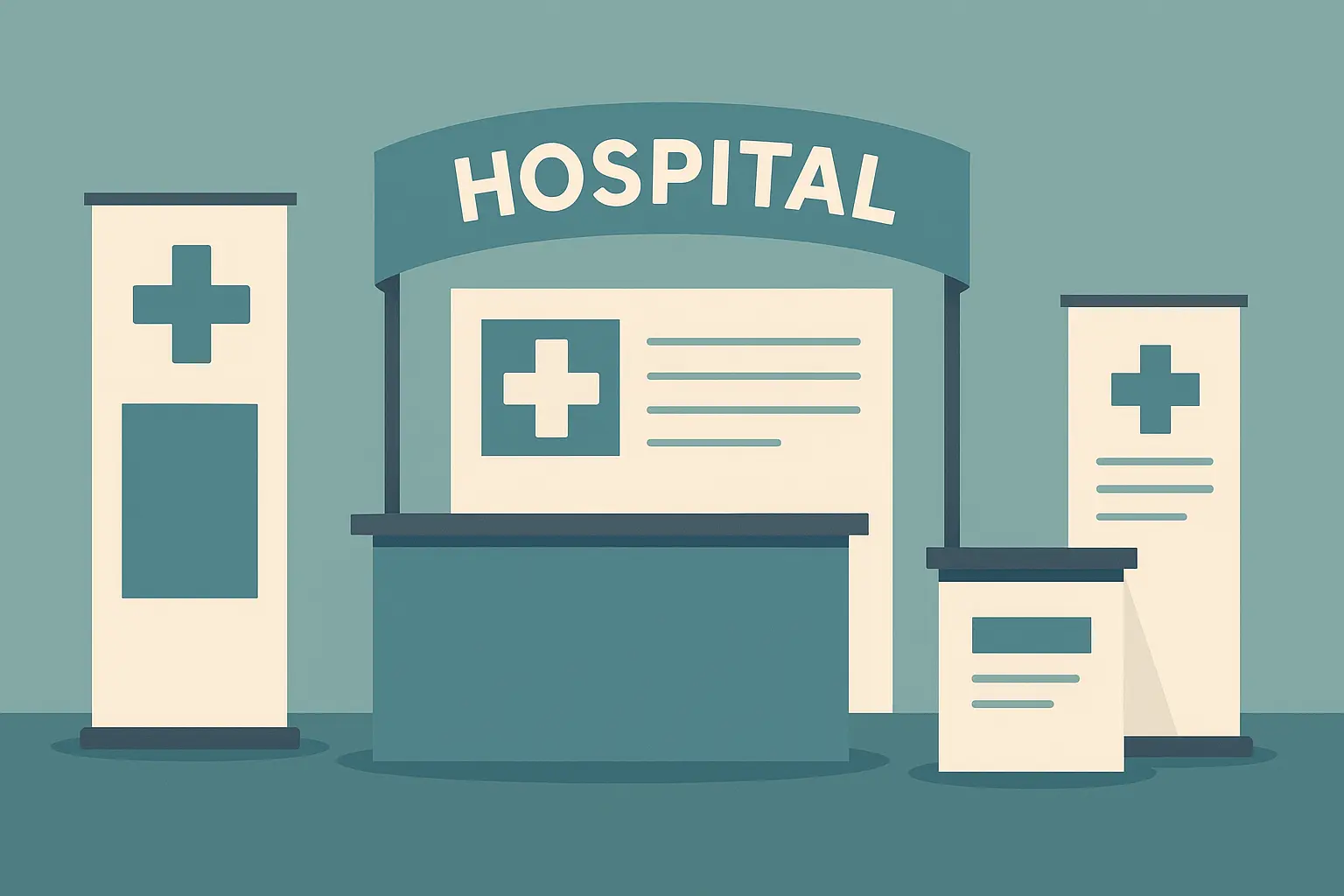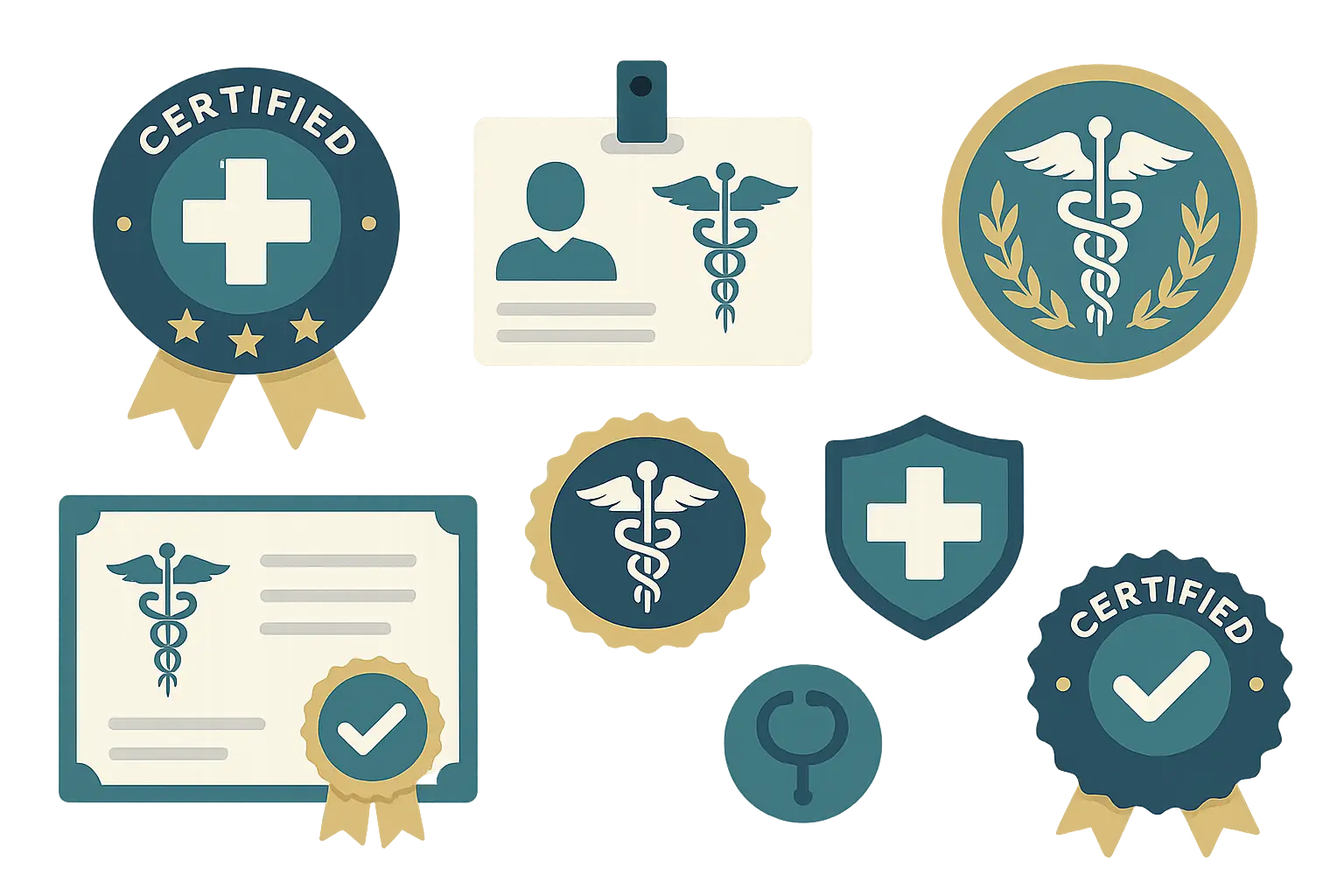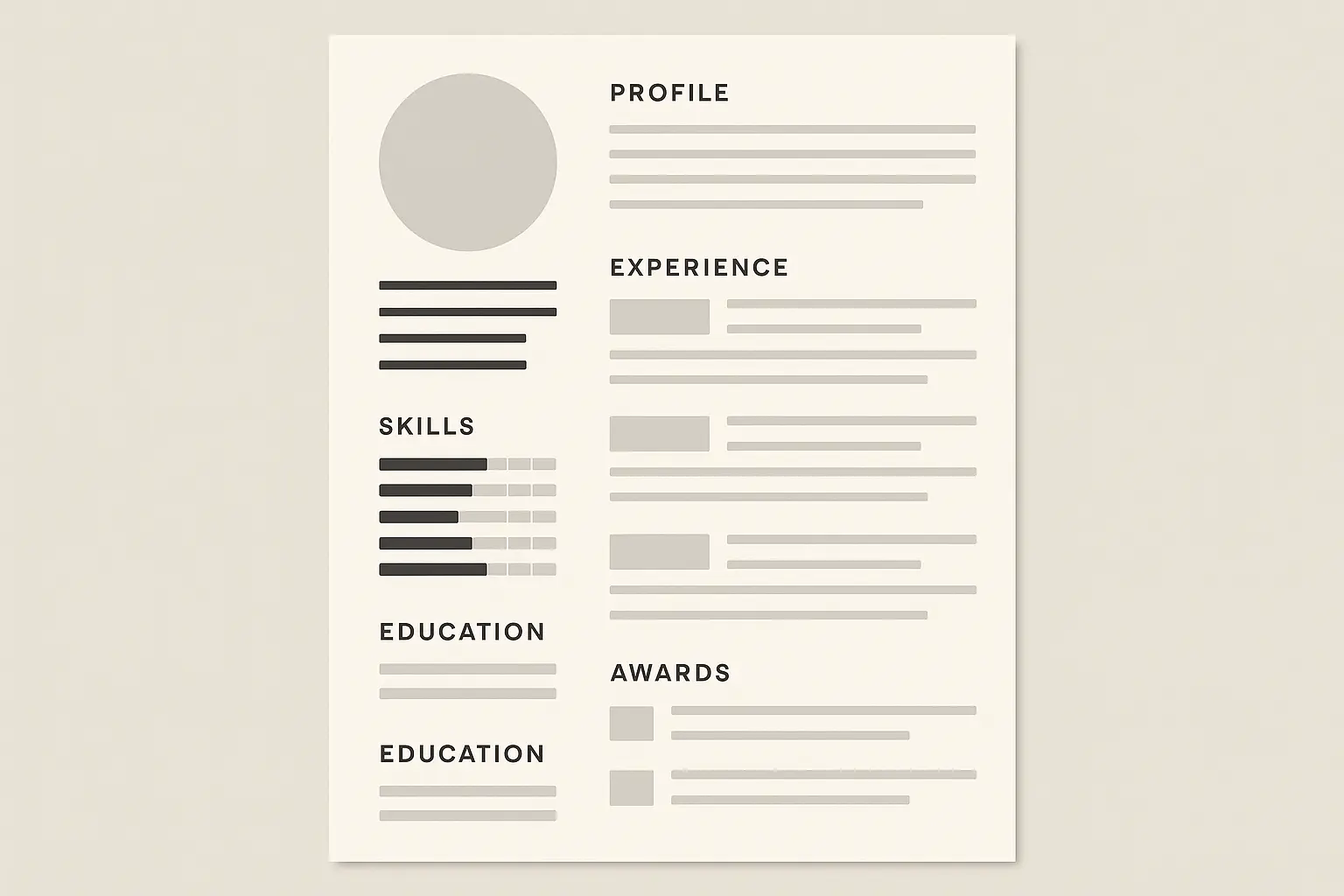Starting your nursing career? You’re probably wondering what you’ll actually make with that shiny new BSN degree. Good news: nurses are in crazy high demand right now, and that’s pushing salaries up across the board.
But here’s the thing – your paycheck depends on way more than just having a degree. Where you work, what certifications you get, and how you negotiate can make a $20,000+ difference in what you earn.
I’ve watched thousands of new grads navigate this job market, and the ones who do their homework before applying always come out ahead. Let me show you exactly how to maximize your earning potential from day one.
Table of Contents
-
Understanding Today’s BSN Salary Reality
-
Where You Work Determines What You Earn
-
The Nursing Shortage is Driving Salaries Up
-
Smart Moves to Boost Your Starting Pay
-
Building Your Long-Term Earning Power
-
Your Action Plan Before Graduation
-
Final Thoughts
TL;DR
-
BSN starting salaries vary dramatically by location, with top markets like San Francisco and New York offering $75,000-$85,000+ while rural areas typically start lower but offer unique incentives
-
Hospital systems and academic medical centers generally provide the most competitive starting packages for new BSN graduates
-
The post-pandemic nursing shortage has pushed starting salaries up 15-25% at many facilities, giving new grads more negotiating power
-
Additional certifications (BLS, ACLS, PALS) and specialty training can increase your starting salary and marketability
-
Building relationships during clinical rotations often leads to job offers and insider knowledge about compensation
-
Advanced practice roles (nurse practitioners) typically earn 40-60% more than staff nurses, making graduate education a valuable long-term investment
-
Strategic preparation during your final semester – including resume development and salary research – maximizes your competitiveness in the job market
Understanding Today’s BSN Salary Reality
Let’s get real about what you’ll actually earn as a new BSN grad. The job market has completely flipped in the last few years, and if you know how to play it right, you can land a seriously good starting package.
Your location is still the biggest factor in determining your paycheck, but there’s way more to it now. The nursing shortage means hospitals are throwing money at new grads in ways I’ve never seen before.
According to Nurse.org’s salary survey, nurses with a Bachelor of Science in Nursing (BSN) earn an average of $40.98 per hour, which is $3.89 more per hour than those with an Associate Degree in Nursing (ADN). That difference adds up to roughly $8,000 more annually – not bad for those extra two years of school, right?
Understanding these market dynamics helps you set realistic expectations while identifying opportunities to maximize your earning potential right from the start. The key is knowing where to look and how to position yourself as a nurse who deserves premium compensation.
Your Location Makes or Breaks Your Paycheck
Where you choose to start your career can literally make or break your financial future. We’re talking about salary differences of 50-60% between different markets. A new grad in rural Alabama faces completely different financial realities than someone starting in Seattle.
I’ve watched too many new grads accept offers without doing their homework on local rates. Don’t be that person.
The Big Money Markets You Should Know About
If you want the highest starting salaries, major metros are where it’s at. Cities like San Francisco, New York, Seattle, and Boston consistently offer $75,000-$85,000+ for new graduates, with some premium facilities reaching even higher.
San Francisco Bay Area hospitals routinely start new BSN grads at $80,000+ with some premium facilities reaching $90,000. New York City follows closely, though the exact figure varies between Manhattan’s prestigious medical centers and outer borough community hospitals. Seattle’s tech boom has driven up healthcare salaries across the board, making it another top-paying market.
But here’s the catch – your rent might eat half that paycheck. Still, starting in these markets often sets you up for higher lifetime earnings and gives you incredible training opportunities.
Small Towns vs. Big Cities: The Real Story
Rural facilities might offer $55,000-$65,000 base salaries, but don’t write them off. Many throw in $10,000-$20,000 sign-on bonuses, student loan repayment programs, or even subsidized housing.
Plus, you’ll see everything in rural settings. It’s like getting five different jobs’ worth of experience, which can fast-track your skills in ways big city hospitals can’t match. Many nurses find the community connection and work-life balance worth the salary difference.
State-by-State Reality Check
California leads the pack at $75,000-$80,000 starting salaries, driven by strong labor laws and high demand. Hawaii offers competitive salaries ($70,000+) but with extremely high living costs. Massachusetts combines good pay with excellent healthcare systems.
Southern states like Alabama, Mississippi, and South Carolina typically start BSN graduates at $50,000-$60,000, though major medical centers in cities like Atlanta or Nashville offer higher compensation. Midwest states fall somewhere in the middle, with Chicago and Minneapolis offering competitive packages.
When planning for advanced education, consider whether you might need to replace your diploma or obtain official transcripts for graduate school applications. Understanding the return on investment for advanced nursing education helps you evaluate long-term career decisions.
|
State |
Average BSN Starting Salary |
Cost of Living Index |
Net Value Score |
|---|---|---|---|
|
California |
$75,000-$80,000 |
High (120-140) |
Moderate |
|
New York |
$70,000-$75,000 |
Very High (130-180) |
Moderate |
|
Texas |
$60,000-$65,000 |
Moderate (95-105) |
High |
|
Florida |
$55,000-$60,000 |
Moderate (100-110) |
Moderate |
|
North Carolina |
$50,000-$55,000 |
Low (90-95) |
High |
Where You Work Determines What You Earn
The type of facility you choose shapes everything – your starting pay, learning opportunities, and career trajectory. Most new grads automatically think “hospital,” but that’s not always your best bet financially.
Understanding these differences helps you target your job search toward settings that align with both your financial goals and professional interests.
Hospitals and Medical Centers: Your Best Bet for Top Dollar
Large hospital networks and teaching hospitals offer the most competitive starting salaries and comprehensive benefits packages. These facilities have the resources to invest in new talent and often provide the most comprehensive orientation programs.
Major health systems like Kaiser Permanente, Mayo Clinic, or Cleveland Clinic often start new BSN grads at premium rates – sometimes $5,000-$10,000 above local averages. They also tend to offer better benefits packages, including health insurance, retirement matching, and tuition reimbursement.
Academic medical centers (teaching hospitals) provide another advantage: exposure to cutting-edge treatments and research opportunities. While the starting salary might be comparable to other hospitals, the learning experience and networking opportunities can accelerate your career progression significantly.
According to the Bureau of Labor Statistics, hospitals (state, local, and private) offer registered nurses an average annual salary of $97,260, making them among the top-paying employers in healthcare.
Specialty Facilities: Where Expertise Pays Extra
Specialized facilities like cancer centers, cardiac care units, and ambulatory surgical centers often provide premium starting salaries to attract qualified BSN nurses. These settings require specific skills and knowledge, which commands higher compensation even for new graduates.
Outpatient surgery centers might offer $3,000-$7,000 above typical hospital starting salaries, plus better work-life balance with no nights, weekends, or holidays. Cancer treatment centers value BSN preparation and often start new grads at premium rates, especially if you’ve completed oncology-focused clinical rotations.
Take Sarah – she had offers from a community hospital at $62,000, a cardiac specialty center at $68,000, and an ambulatory surgery center at $65,000 with no weekend requirements. She chose the cardiac center for the specialized experience and higher pay, which positioned her for rapid advancement in cardiovascular nursing.
The Nursing Shortage Changed Everything
The pandemic didn’t just highlight how important nurses are – it completely shifted the power dynamic. Hospitals that used to have their pick of candidates now compete desperately for new grads.
This shortage, accelerated by COVID-19, has forced healthcare systems to compete aggressively for new talent through enhanced compensation packages and improved working conditions. I’ve witnessed this transformation firsthand – facilities that once had their pick of candidates now actively court new nurses.
How COVID Changed Everything for New Nurses
Healthcare systems raised starting salaries 15-25% across the board following the pandemic. Many facilities introduced “pandemic pay” that became permanent salary adjustments. Sign-on bonuses, once reserved for experienced nurses, became standard for new graduates.
Hospitals that previously started new BSN grads at $60,000 suddenly found themselves offering $70,000+ just to remain competitive. The shift wasn’t just about money – hospitals began offering more flexible scheduling, better nurse-to-patient ratios, and enhanced professional development opportunities.
The American Hospital Association recently reported that roughly 100,000 fewer nurses are working today than before the COVID-19 pandemic according to the American Nurses Association, highlighting the critical shortage that’s driving up compensation for new graduates.
Hospitals Are Fighting Over New Grads
This competition gives you serious negotiating power. Hospitals now offer “new grad packages” with guaranteed positions after graduation, paid orientation periods, and mentorship programs. Others provide tuition reimbursement for BSN programs or offer to pay for additional certifications during your first year.
The competition extends beyond salary. Facilities are promoting work-life balance, offering four-day work weeks, providing free parking, and even including gym memberships or wellness programs. Some hospitals guarantee no mandatory overtime for new graduates during their first year.
What the Future Holds for Your Paycheck
Industry analysts predict continued upward pressure on starting salaries through 2030, driven by baby boomer retirements and increased healthcare demand. This trend suggests that current new graduates are entering the profession at an opportune time for long-term earning potential.
The Bureau of Labor Statistics projects nursing job growth of 5 percent from 2024 to 2034, faster than average for all occupations, with about 189,100 openings for registered nurses projected each year.
This sustained demand should continue driving salary growth, particularly for BSN-prepared nurses who are increasingly preferred by healthcare employers.
Smart Moves to Boost Your Starting Pay
Want to maximize your starting salary? It’s all about strategic positioning. The new grads who increase their offers by $5,000-$10,000 aren’t lucky – they’re prepared.
Strategic career planning and credential optimization can significantly impact your starting salary and long-term earning trajectory. The key lies in understanding what employers value most and positioning yourself as a standout candidate.
Certifications That Actually Move the Needle
Not all certifications are created equal. Focus on the ones employers actually care about, and get them before you graduate.
Additional certifications and specialized training can increase your marketability and starting salary by demonstrating advanced competency in high-demand areas. However, not all certifications carry equal weight with employers, so focusing on the most valued credentials maximizes your return on investment.
The Must-Haves Before Graduation
BLS is non-negotiable – most hospitals won’t even talk to you without current Basic Life Support certification. Advanced Cardiac Life Support (ACLS) sets you apart from other new grads and opens ICU/ER doors. Pediatric Advanced Life Support (PALS) is your ticket to pediatric units and emergency departments.
Getting these while in school costs $500-$800 total but can boost your starting salary $2,000-$5,000 annually. Do the math – that’s a pretty solid return on investment. Many employers will reimburse certification costs, but having them upfront shows initiative and makes you immediately deployable to high-acuity units.
Pre-Graduation Certification Checklist:
-
Basic Life Support (BLS) – Required for all positions
-
Advanced Cardiac Life Support (ACLS) – ICU/ER advantage
-
Pediatric Advanced Life Support (PALS) – Pediatric units
-
Neonatal Resuscitation Program (NRP) – NICU opportunity
-
Trauma Nursing Core Course (TNCC) – Emergency/trauma centers
Specialty Certifications That Command Premium Pay
Critical care, emergency, and perioperative certifications often mean $3,000-$7,000 salary bumps. While some certifications require experience, others are available to new graduates and provide immediate market advantages.
The Critical Care Registered Nurse (CCRN) certification typically requires two years of experience, but some new grads pursue it immediately after starting in ICU positions. Emergency Nursing Pediatric Course (ENPC) certification is available to new grads and valuable for emergency departments.
Perioperative nursing certifications (CNOR) are highly valued in surgical settings and can increase starting salaries by $3,000-$7,000. Some facilities hire new BSN grads into OR residency programs and pay for certification training, making this an attractive specialty path.
Job Search Strategies That Work
Treat job hunting like the strategic process it is. The best opportunities often aren’t posted publicly, so relationships matter more than perfect resumes.
Implementing a systematic approach to your job search, including networking, interview preparation, and salary negotiation strategies, maximizes your earning potential. The most successful new graduates treat job searching as a strategic process rather than simply applying to posted positions.
Turn Clinical Rotations Into Job Offers
Every clinical rotation is basically an extended job interview. Show up early, ask thoughtful questions, and stay engaged. Building strong relationships during clinical experiences often leads to job offers and can provide insider knowledge about compensation packages and workplace culture.
Keep in touch with preceptors and unit managers after rotations end. Send thank-you notes, update them on your progress, and inform them when you’re job searching. Many hospitals prefer hiring new grads they’ve already observed in action over unknown candidates.
Michael impressed his ICU preceptor during his senior clinical rotation by volunteering to help with quality improvement projects and asking thoughtful questions about patient care. Three months before graduation, the unit manager offered him a position with a $3,000 sign-on bonus and guaranteed day shift placement – opportunities not available to external applicants.
Network Your Way to Better Offers
Join professional organizations while you’re still in school. Attend meetings, volunteer for committees, participate in continuing education. These connections provide inside information about salaries and workplace culture that you can’t get anywhere else.
Student nurse associations often have partnerships with local hospitals and can provide inside information about hiring practices, salary ranges, and workplace culture. Some organizations offer job fairs exclusively for members, giving you access to opportunities before they’re widely advertised.
Negotiate Like You Mean It
Research market rates using sites like Glassdoor, PayScale, and local nursing association salary surveys. Know what new BSN graduates make at your target facilities and geographic area. This knowledge gives you confidence and credibility during negotiations.
Don’t focus solely on base salary. Negotiate shift differentials, weekend premiums, certification bonuses, and tuition reimbursement. Some facilities offer flexible scheduling, additional PTO, or professional development funds that have real monetary value.
Practice your negotiation conversation beforehand. Prepare specific examples of your qualifications, certifications, and clinical performance. Frame your request in terms of the value you bring to the organization rather than your personal financial needs. According to The National Council of State Boards of Nursing’s (NCSBN) most recent 2024 workforce report from Nurse.org, the number of BSN-prepared nurses is at an all-time high of 73% of all RNs, demonstrating the increasing value employers place on bachelor’s-prepared nurses.
Exploring Non-Traditional Nursing Paths
Think beyond bedside nursing. Telehealth, nursing informatics, and healthcare tech roles often pay 10-20% above traditional nursing and offer better work-life balance.
Exploring non-traditional nursing roles and emerging specialties can provide unique opportunities for higher starting compensation and career differentiation. These positions often require the same BSN foundation but offer different work environments and compensation structures.
Tech-Savvy Nurses Are in High Demand
Telehealth nursing positions exploded during COVID-19 and many offer starting salaries 10-20% above traditional bedside nursing. These roles often provide better work-life balance with regular business hours and no weekend or holiday requirements.
Nursing informatics roles focus on healthcare technology systems and data analysis. While some positions require additional training, many hospitals hire new BSN grads into informatics residency programs with competitive starting salaries and excellent advancement potential.
Getting on the Leadership Track Early
Look for new graduate programs that include leadership development components. Some hospitals offer “leadership tracks” for high-potential new hires, providing management training alongside clinical orientation.
Volunteer for unit committees, quality improvement projects, and professional development initiatives. These activities demonstrate leadership interest and provide valuable experience that sets you apart from peers when promotion opportunities arise.
Building Long-Term Earning Power
Your starting salary is just that – a starting point. The real money comes from strategic career planning over time. Understanding the trajectory of nursing career advancement and salary progression helps new BSN graduates make informed decisions about their professional development and specialization choices.
The difference between entry-level and mid-career nursing salaries can be substantial – often doubling or tripling over 10-15 years with the right strategic moves. How much nurses make depends heavily on the path you choose and how intentionally you build your expertise.
Advanced Degrees: Worth the Investment?
Advanced practice nurses typically earn 40-60% more than staff nurses, making graduate education a valuable long-term investment for many BSN graduates. However, the path requires significant time and financial investment, plus the job market varies by specialty and geographic location.
Nurse Practitioner: The Big Money Move
Family nurse practitioners in most markets start around $90,000-$110,000, compared to staff nurse salaries of $60,000-$75,000. Specialized NP roles like acute care or psychiatric mental health often command even higher salaries, with some positions reaching $120,000+ for new NP graduates.
But NP school costs $40,000-$80,000 and takes 2-3 years. Many nurses work part-time while in school, reducing their income during the program. However, the salary increase typically pays for itself within 3-5 years.
Consider the job market in your area before committing to NP school. Some regions have oversaturated NP markets, while others desperately need providers. Rural areas often offer loan forgiveness programs for NPs willing to work in underserved communities.
When planning for advanced education, consider whether you might need to replace your diploma or obtain official transcripts for graduate school applications.
|
Role |
Starting Salary Range |
Experience Required |
Education Required |
|---|---|---|---|
|
Staff Nurse (BSN) |
$55,000-$80,000 |
New Graduate |
BSN |
|
Charge Nurse |
$65,000-$90,000 |
2-3 years |
BSN + Leadership Training |
|
Nurse Manager |
$80,000-$100,000 |
5+ years |
MSN preferred |
|
Nurse Practitioner |
$90,000-$120,000 |
MSN program |
MSN/DNP |
|
Chief Nursing Officer |
$150,000-$250,000 |
10+ years |
MSN/DNP + MBA |
Climbing the Executive Ladder
Nursing leadership is another path worth considering. Nurse managers typically earn $80,000-$100,000, while director-level positions range from $100,000-$130,000. Chief nursing officers at major health systems can earn $150,000-$250,000+ depending on the organization size and market.
The path to nursing leadership usually requires an MSN in nursing administration or leadership, plus 5-10 years of progressive management experience. Many successful nursing executives also pursue MBA degrees to strengthen their business acumen.
Staying Competitive Throughout Your Career
The most successful nurses treat professional development as an ongoing investment rather than a one-time educational achievement. Ongoing skill development and specialization create opportunities for salary increases, promotions, and career mobility throughout your nursing career.
Keep Your Certifications Current (And Add New Ones)
Most specialty certifications require renewal every 3-5 years through continuing education or re-examination. While this requires ongoing effort and expense, certified nurses typically earn $3,000-$8,000 more annually than their non-certified peers.
Stack certifications strategically based on your career goals. An ICU nurse might pursue CCRN, then add stroke certification (SCRN) or cardiac surgery certification. Each additional credential increases your value and marketability.
Professional Development That Pays Off
Attending nursing conferences provides access to cutting-edge research, networking opportunities, and continuing education credits. Many employers will pay for conference attendance, making it a valuable benefit to negotiate during hiring or performance reviews.
Speaking at conferences, publishing articles, or serving on professional committees establishes you as a thought leader in your specialty. These activities often lead to consulting opportunities, board positions, or executive roles that command premium compensation.
Jennifer started as a new grad in the NICU at $58,000. She obtained her CCRN-Neonatal certification after two years, earning a $2,000 raise. She then volunteered to precept new nurses and joined the unit’s quality committee. These experiences led to a charge nurse promotion at $72,000 within four years, demonstrating how strategic professional development accelerates earning potential.
Your Action Plan Before Graduation
Strategic preparation during your final semester maximizes your competitiveness and starting salary potential. The difference between winging it and planning strategically can be thousands of dollars in your starting package.
Actionable strategies and timeline recommendations help new BSN graduates navigate the job market effectively and secure optimal starting positions. Strategic preparation during your final nursing school semester maximizes your competitiveness while reducing the stress of job searching.
Getting Your Paperwork Perfect
Your resume is often employers’ first impression of you, making it essential to showcase your value proposition effectively. Strategic preparation during your final nursing school semester maximizes your competitiveness and starting salary potential in the job market.
Crafting a Resume That Gets Noticed
Start with a strong summary statement that highlights your BSN education, relevant certifications, and key clinical experiences. Quantify your accomplishments whenever possible – “Cared for 6-8 patients per shift in medical-surgical unit” is more impactful than “Provided patient care.”
Include all clinical rotations with specific units, patient populations, and skills demonstrated. List any leadership roles, volunteer work, or healthcare-related employment. Don’t forget to mention languages spoken, computer skills, and any awards or recognition received during school.
Keep your resume to one page initially, but prepare a longer version with detailed clinical experiences for positions that request comprehensive application materials. Tailor each resume to the specific position and facility you’re targeting.
As you prepare for your nursing career, ensure you understand what does a college diploma look like so you can properly verify and display your BSN credentials to employers.
Mastering the Interview Game
Research each facility thoroughly before interviews. Understand their mission, values, patient populations, and recent news or achievements. This knowledge helps you ask informed questions and demonstrate genuine interest in the organization.
Prepare specific examples using the STAR method (Situation, Task, Action, Result) to answer behavioral interview questions. Practice describing challenging patient situations, teamwork examples, and times you demonstrated critical thinking or leadership.
Prepare thoughtful questions about orientation programs, mentorship opportunities, career advancement paths, and unit culture. Asking about professional development opportunities shows you’re thinking long-term and serious about your career growth.
Before interviews, consider how you’ll handle questions about your educational background and ensure you have proper documentation by understanding how to get a copy of your diploma if needed.
Interview Preparation Checklist:
-
Research facility mission, values, and recent news
-
Prepare STAR method examples for common questions
-
Practice salary negotiation conversation
-
Prepare thoughtful questions about unit culture
-
Research average salaries for the position and location
-
Prepare portfolio with certifications and clinical evaluations
How ValidGrad Supports Your Nursing Career Journey
As you build your nursing career with competitive starting salaries and promising advancement opportunities, protecting your educational credentials becomes increasingly important. ValidGrad understands that your BSN degree represents a significant investment in your professional future and provides reliable document replacement services when you need backup copies or replacements for your original diploma.
Whether you’re applying for multiple positions, need copies for different office locations, or want to safeguard your original degree while displaying replicas, ValidGrad’s high-quality replacement documents ensure your credentials are always available when opportunities arise. With instant digital delivery and fast physical shipping, you can maintain professional readiness without worrying about lost or damaged diplomas.
For nursing professionals who need to maintain multiple copies of their credentials for various employers or licensing boards, ValidGrad offers professional diploma display solutions and replacement diplomas to ensure your qualifications are always properly documented and presented.
Ready to secure backup copies of your BSN degree? Visit ValidGrad today to protect your investment in nursing education and ensure your credentials are always ready when your career demands them.
Final Thoughts
Your BSN opens doors to a financially rewarding career, but maximizing your earning potential requires strategic thinking from day one. The current nursing shortage has created unprecedented opportunities – starting salaries are rising and employers are competing aggressively for qualified candidates.
Remember, your starting salary is just the beginning of your earning journey. The decisions you make early in your career – from where you work to what certifications you pursue – will compound over time and significantly impact your lifetime earnings. Focus on building strong clinical skills, maintaining professional relationships, and staying current with industry trends.
The nursing profession offers multiple pathways for career advancement and salary growth. Whether you choose to specialize in a particular area, pursue advanced practice roles, or move into leadership positions, your BSN foundation provides the flexibility to adapt as your interests and goals evolve.
Most importantly, don’t undervalue yourself in the job market. You’ve invested significant time, effort, and money in your nursing education. Research market rates, negotiate confidently, and remember that the current shortage gives you more leverage than previous generations of new graduates enjoyed. Your skills are in high demand, and you deserve compensation that reflects your value to healthcare organizations.
The nursing profession has never been more promising financially, and with strategic planning, your BSN can be the foundation for a lucrative and meaningful career that grows with you over time.









